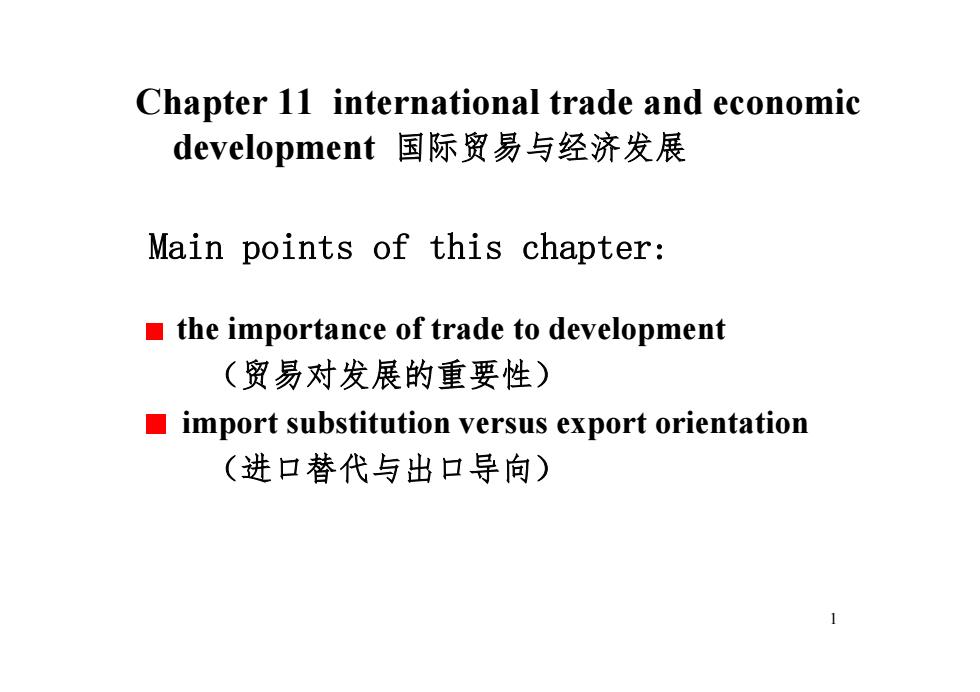
Chapter 11 international trade and economic development国际贸易与经济发展 Main points of this chapter: the importance of trade to development (贸易对发展的重要性) import substitution versus export orientation (进口替代与出口导向)
1 Chapter 11 international trade and economic development 国际贸易与经济发展 Main points of this chapter: the importance of trade to development (贸易对发展的重要性) import substitution versus export orientation (进口替代与出口导向)
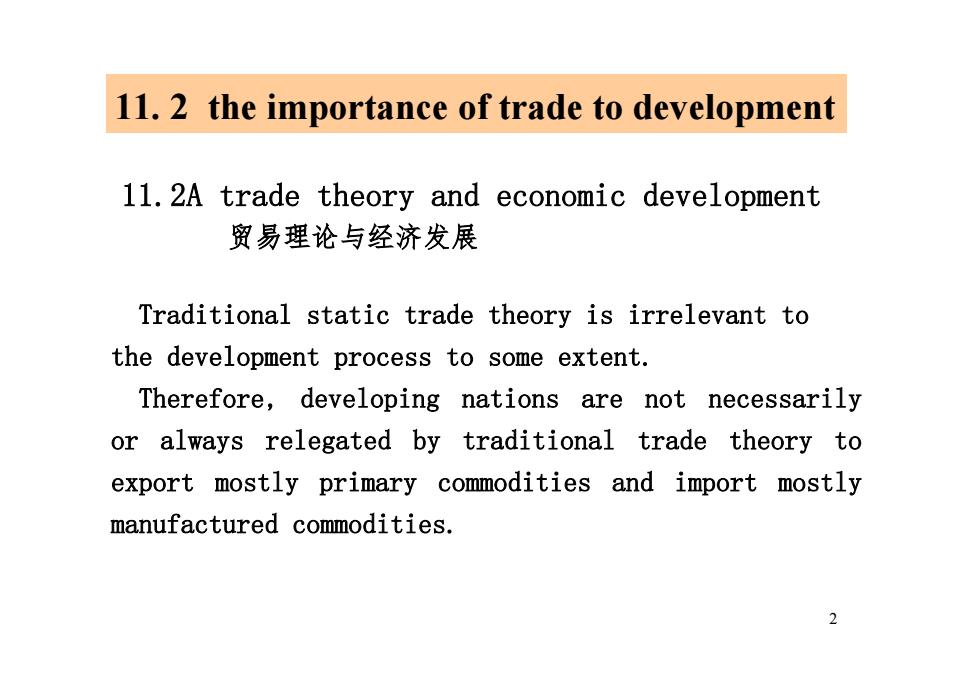
11.2 the importance of trade to development 11.2A trade theory and economic development 贸易理论与经济发展 Traditional static trade theory is irrelevant to the development process to some extent. Therefore,developing nations are not necessarily or always relegated by traditional trade theory to export mostly primary commodities and import mostly manufactured commodities. 2
2 11. 2 the importance of trade to development Traditional static trade theory is irrelevant to the development process to some extent. Therefore, developing nations are not necessarily or always relegated by traditional trade theory to export mostly primary commodities and import mostly manufactured commodities. 11.2A trade theory and economic development 贸易理论与经济发展
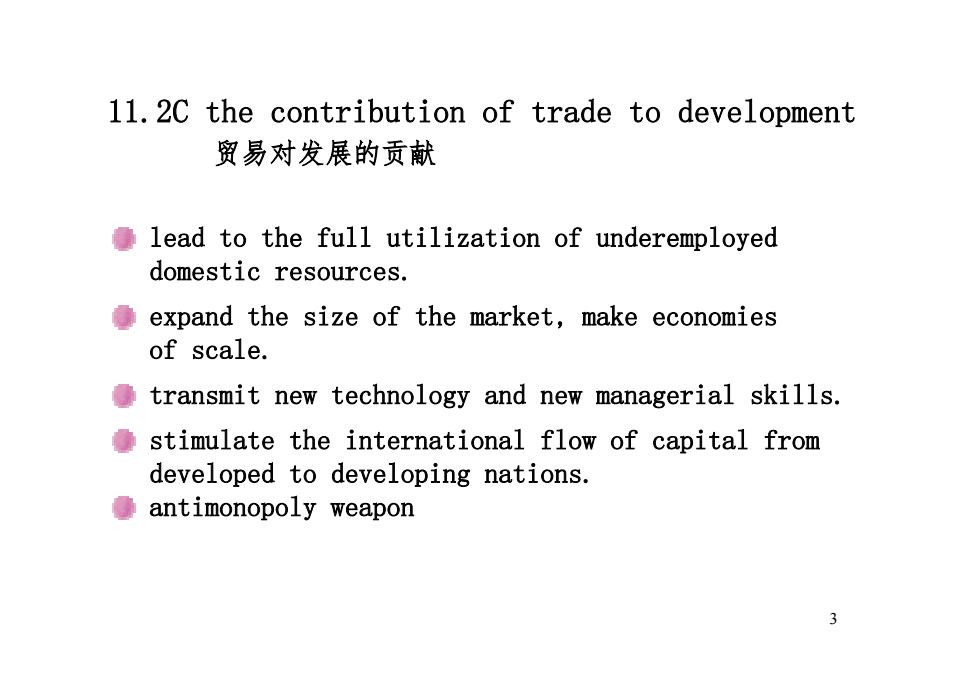
11.2C the contribution of trade to development 贸易对发展的贡献 lead to the full utilization of underemployed domestic resources. expand the size of the market,make economies of scale. transmit new technology and new managerial skills. stimulate the international flow of capital from developed to developing nations. ●antimonopoly weapon 3
3 lead to the full utilization of underemployed domestic resources. expand the size of the market, make economies of scale. transmit new technology and new managerial skills. stimulate the international flow of capital from developed to developing nations. antimonopoly weapon 11.2C the contribution of trade to development 贸易对发展的贡献
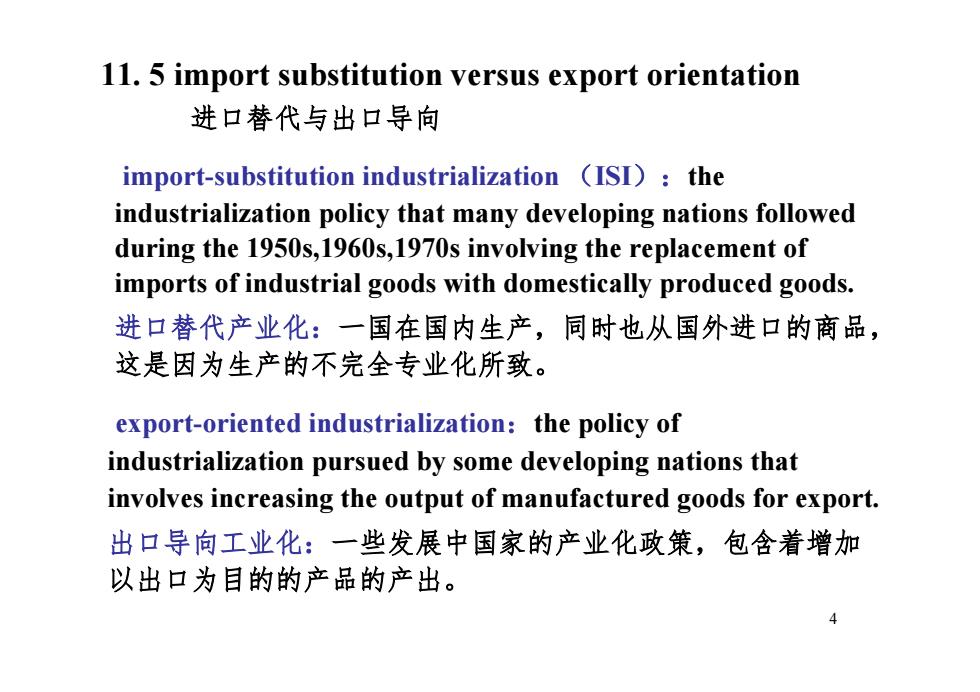
11.5 import substitution versus export orientation 进口替代与出口导向 import-substitution industrialization (ISI:the industrialization policy that many developing nations followed during the 1950s,1960s,1970s involving the replacement of imports of industrial goods with domestically produced goods. 进口替代产业化:一国在国内生产,同时也从国外进口的商品, 这是因为生产的不完全专业化所致。 export-oriented industrialization:the policy of industrialization pursued by some developing nations that involves increasing the output of manufactured goods for export. 出口导向工业化:一些发展中国家的产业化政策,包含着增加 以出口为目的的产品的产出
4 11. 5 import substitution versus export orientation 进口替代与出口导向 import-substitution industrialization (ISI):the industrialization policy that many developing nations followed during the 1950s,1960s,1970s involving the replacement of imports of industrial goods with domestically produced goods. 进口替代产业化:一国在国内生产,同时也从国外进口的商品, 这是因为生产的不完全专业化所致。 export-oriented industrialization:the policy of industrialization pursued by some developing nations that involves increasing the output of manufactured goods for export. 出口导向工业化:一些发展中国家的产业化政策,包含着增加 以出口为目的的产品的产出
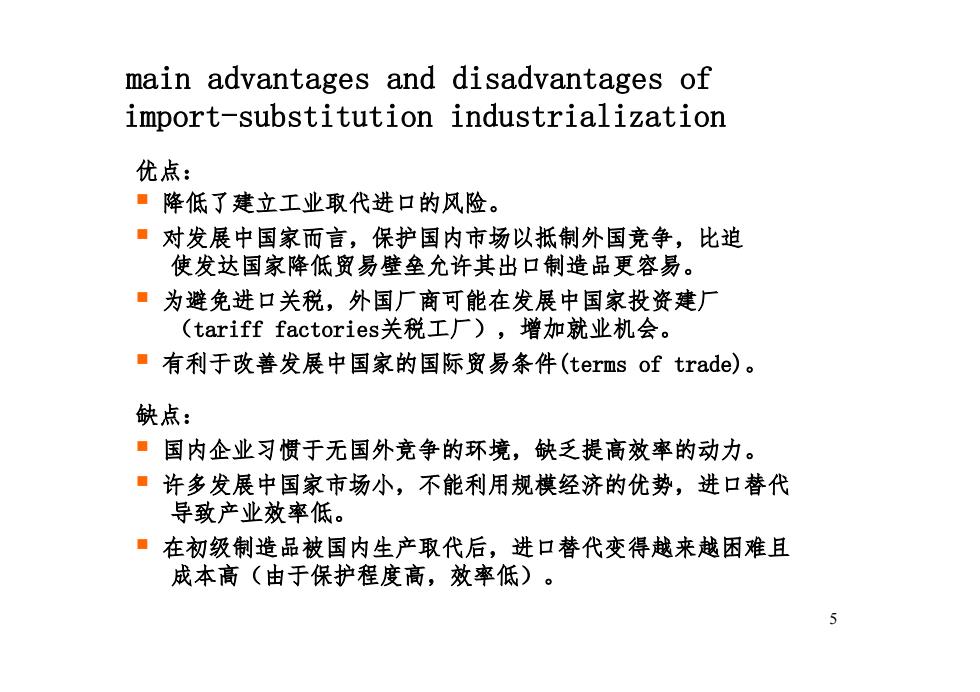
main advantages and disadvantages of import-substitution industrialization 优点: ·降低了建立工业取代进口的风险。 ■对发展中国家而言,保护国内市场以抵制外国竞争,比迫 使发达国家降低贸易壁垒允许其出口制造品更容易。 ·为避免进口关税,外国厂商可能在发展中国家投资建厂 (tariff factories关税工厂),增加就业机会。 "有利于改善发展中国家的国际贸易条件(terms of trade)。 缺点: ■国内企业习惯于无国外竞争的环境,缺乏提高效率的动力。 ■许多发展中国家市场小,不能利用规模经济的优势,进口替代 导致产业效率低。 ■在初级制造品被国内生产取代后,进口替代变得越来越困难且 成本高(由于保护程度高,效率低)。 5
5 优点: 降低了建立工业取代进口的风险。 对发展中国家而言,保护国内市场以抵制外国竞争,比迫 使发达国家降低贸易壁垒允许其出口制造品更容易。 为避免进口关税,外国厂商可能在发展中国家投资建厂 (tariff factories关税工厂),增加就业机会。 有利于改善发展中国家的国际贸易条件(terms of trade)。 main advantages and disadvantages of import-substitution industrialization 缺点: 国内企业习惯于无国外竞争的环境,缺乏提高效率的动力。 许多发展中国家市场小,不能利用规模经济的优势,进口替代 导致产业效率低。 在初级制造品被国内生产取代后,进口替代变得越来越困难且 成本高(由于保护程度高,效率低)